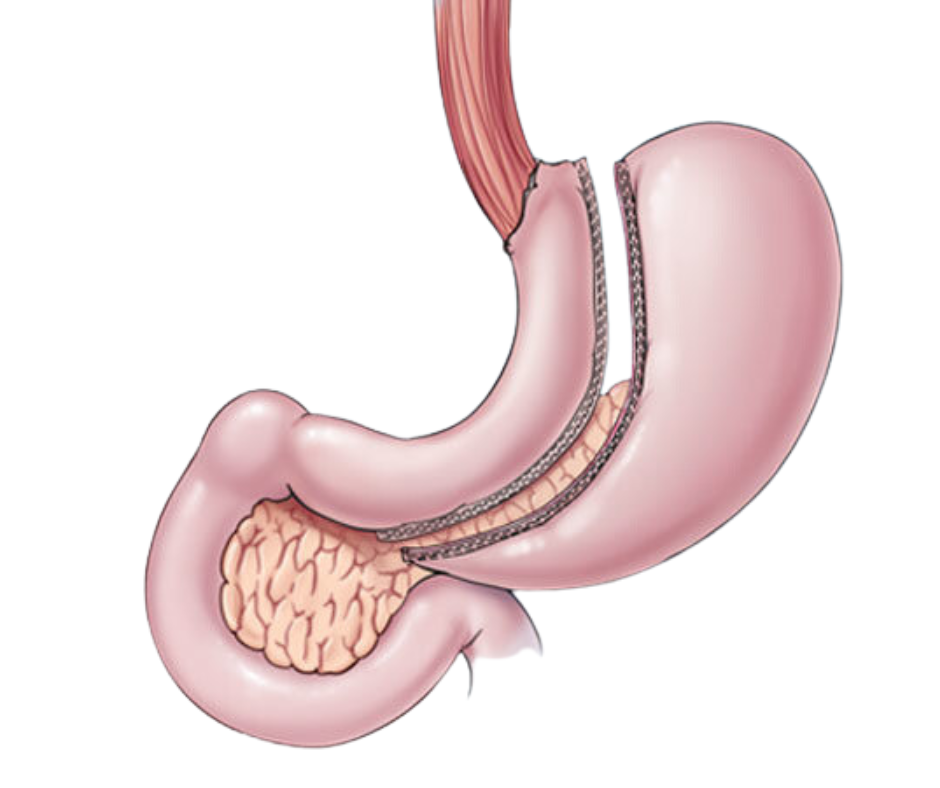Metabolic Surgery

Welcome to the world of metabolic surgery, where the battle against obesity and metabolic disorders is being fought with cutting-edge surgical techniques. If you’ve been struggling with your weight or grappling with diabetes, this blog post is about to change your life!
Metabolic surgery has emerged as a game-changer in the field of healthcare, offering an effective solution for those who have tried everything else without success. But what exactly is metabolic surgery? How does it work? And most importantly, can it really help you achieve long-term weight loss and improved metabolic health?
In this exciting exploration of metabolic surgery, we’ll delve into its various benefits, discuss its impact on diabetes remission rates, shed light on different types of bariatric surgeries available today, and even share inspiring success stories from patients who have transformed their lives through these procedures.
So fasten your seatbelts as we take you on a journey through the fascinating world of metabolic surgery. Get ready to discover how this revolutionary approach could be just what you need to overcome obesity and reclaim control over your overall well-being. Let’s dive in!
Abstract
In this fast-paced world, where time is of the essence, let’s jump straight into the heart of our topic: metabolic surgery. We’ll explore its incredible potential to transform lives and tackle obesity and metabolic disorders head-on. So get ready for an exhilarating ride through the world of surgical innovation!
Introduction
Welcome to the world of metabolic surgery! If you’re struggling with obesity and metabolic disorders, this blog post is here to guide you towards an effective solution. In this article, we will explore the ins and outs of metabolic surgery, its impact on diabetes remission, the benefits it offers, considerations for eligibility criteria, procedure and recovery details, success stories from patients like you, factors influencing long-term success, and more. Get ready to embark on a transformative journey towards improved health and well-being!
When it comes to tackling obesity and metabolic disorders, one solution that is gaining popularity is metabolic surgery. But what exactly is it? Well, it’s not just your run-of-the-mill weight loss surgery. Metabolic surgery goes beyond shedding pounds; it targets the root cause of these conditions by altering the digestive system and hormonal balance. It’s a transformative approach that offers hope for those looking to reclaim their health!
Before diving into the details of metabolic surgery, it’s important to understand its roots. Metabolic surgery, also known as bariatric metabolic surgery or weight loss surgery, has been around for several decades. Initially developed as a solution for obesity, it was soon discovered that this procedure had a profound impact on metabolic disorders such as type 2 diabetes and hypertension. With advancements in medical technology and surgical techniques, metabolic surgery has become an effective tool in improving both weight management and overall health outcomes.
When it comes to battling diabetes, metabolic surgery is proving to be a game-changer. Studies have shown that this surgical procedure can lead not only to significant weight loss but also to the remission of type 2 diabetes. Imagine life without worrying about blood sugar levels and insulin injections! Let’s dive deeper into the incredible benefits of metabolic surgery for diabetes remission.
Imagine breaking free from the shackles of diabetes! With metabolic surgery, it’s not just a dream but a reality. Studies have shown that this innovative procedure can lead to significant remission rates for diabetes. Say goodbye to daily medications and insulin injections, and embrace a life full of possibilities. Let’s explore the impact of metabolic surgery on diabetes remission rates and unlock the door to better health!
When it comes to metabolic surgery, there are different options available. Each surgical procedure has its own benefits and considerations. Some of the commonly performed bariatric surgeries include gastric bypass, sleeve gastrectomy, and adjustable gastric banding. These procedures vary in terms of their impact on weight loss, diabetes remission rates, and overall effectiveness in improving metabolic health markers. Let’s take a closer look at how these surgeries compare and which one might be the best fit for you!
Benefits of Metabolic Surgery
The Benefits of Metabolic Surgery are truly life-changing! Say goodbye to excess weight and hello to improved health. Not only does this surgery help with weight loss, but it also leads to significant improvements in metabolic health markers like blood sugar levels and cholesterol. Long-term outcomes show reduced risks of heart disease, stroke, and even certain cancers. It’s time to embrace a healthier future with metabolic surgery! So why wait? Start your journey towards a better quality of life today!
Losing weight can be a challenging journey, but metabolic surgery offers hope for those struggling with obesity. Through this life-changing procedure, individuals have the opportunity to shed pounds and improve their overall health. Say goodbye to restrictive diets and endless hours at the gym – metabolic surgery is here to help you achieve your weight loss goals!
One of the significant benefits of metabolic surgery is its impact on improving metabolic health markers. Studies have shown that after undergoing this procedure, individuals experience positive changes in their blood sugar levels, cholesterol levels, and blood pressure. These improvements not only contribute to better overall health but also reduce the risk of developing other chronic diseases. Metabolic surgery truly transforms lives by addressing the underlying metabolic issues associated with obesity.
After undergoing metabolic surgery, patients can experience a myriad of positive health outcomes that extend far beyond just weight loss. Studies have shown sustained improvements in blood pressure, cholesterol levels, and even reduced risk of heart disease. With long-term commitment to lifestyle changes and follow-up care, the benefits of metabolic surgery can truly be life-changing.

Considerations and Eligibility Criteria:
Before undergoing metabolic surgery, it’s important to consider certain factors. Eligibility criteria vary based on individual circumstances, but generally include a body mass index (BMI) of 35 or higher with obesity-related comorbidities. Pre-surgery evaluation involves assessing medical history and current health status. Managing expectations and understanding the risks involved is crucial for a successful outcome. Always consult with a healthcare professional to determine if metabolic surgery is the right option for you!
Eligibility matters! Before undergoing metabolic surgery, it’s important to meet certain criteria. PICOS (Patient, Intervention, Comparison, Outcomes, Study design) is a tool used to determine eligibility. Factors like BMI, presence of comorbidities, and previous weight loss attempts are considered. Remember, eligibility is key for successful outcomes! So consult your doctor to see if you meet the requirements. It’s time for a healthier future!

Pre-surgery Evaluation: Ensuring a Smooth Journey to Transformation
Before embarking on the life-changing journey of metabolic surgery, it is crucial to undergo a thorough pre-surgery evaluation. This evaluation helps determine your eligibility and assesses any potential risks or complications. From medical tests to psychological assessments, this comprehensive evaluation ensures that you are physically and mentally prepared for the transformative process ahead. So, buckle up and get ready for a personalized roadmap towards a healthier future!
When considering metabolic surgery, it’s important to manage expectations and be aware of the potential risks involved. While the procedure can offer life-changing benefits, it’s not a magic solution. Patients must understand that there may be complications and adjustments post-surgery. By staying informed, working closely with healthcare professionals, and following guidelines for recovery, individuals can maximize their chances of success on this transformative journey!
Metabolic Surgery: Procedure and Recovery
So, you’ve decided to take control of your health and explore metabolic surgery as an option. But what does the procedure entail, and what can you expect during recovery? Let’s dive in!
The surgical procedure itself involves making small incisions and using advanced techniques to modify the digestive system. The goal is to reduce the size of the stomach or reroute the intestines, ultimately aiding in weight loss and improving metabolic health.
Now let’s talk about recovery. After surgery, you’ll spend a few days in the hospital for monitoring before being discharged. It’s important to follow your surgeon’s postoperative instructions carefully – this includes sticking to a liquid diet initially, then gradually transitioning back to solid foods.
During recovery, it’s normal to experience some discomfort or pain at the incision sites. Your healthcare team will provide pain management strategies such as medication or suggested lifestyle changes like getting plenty of rest and staying hydrated.
Remember that everyone’s recovery journey is unique – some may bounce back quickly while others might take longer. Be patient with yourself and prioritize self-care during this time.
In our next section, we’ll delve into success stories from individuals who have undergone metabolic surgery and transformed their lives for the better! Stay tuned!
Metabolic surgery is a life-changing procedure that tackles obesity and metabolic disorders head-on. But what does the surgical process actually entail? Well, it involves making small incisions in the abdomen and using specialized tools to alter the digestive system. It’s like sculpting your body from the inside out! This innovative approach allows for minimal scarring and faster recovery times. So, if you’re considering metabolic surgery, rest assured knowing that medical advancements have made the procedure safer and more effective than ever before!
While metabolic surgery offers promising results, it’s important to understand the potential risks and complications involved. Like any surgical procedure, there are some inherent risks such as infection, bleeding, or adverse reactions to anesthesia. Other possible complications include leakage at the surgical site, blood clots, or even long-term vitamin deficiencies. It’s crucial to discuss these possibilities with your healthcare provider and weigh them against the potential benefits before making a decision about metabolic surgery. Stay informed and make an educated choice!
After metabolic surgery, your body needs time to heal and adjust. The recovery period can vary depending on the type of surgery you have undergone. It is crucial to follow postoperative care instructions provided by your surgeon, including dietary guidelines and physical activity recommendations. Remember, patience is key during this phase as it allows for optimal healing and long-term success. Stay committed to your recovery journey!
Making lifestyle changes and receiving supportive care are crucial for long-term success following metabolic surgery. Adopting a healthy diet, regular exercise routine, and stress management techniques can help maintain weight loss and improve overall well-being. Additionally, having a strong support system of friends, family, or support groups can provide encouragement and motivation throughout the journey. Remember, sustainable results require consistent effort and ongoing support! Keep pushing forward on your path to better health!
Taking care of your mental health is just as important as taking care of your physical well-being. Metabolic surgery can lead to significant weight loss, but it’s crucial to address any underlying emotional issues. Building a strong support system, seeking therapy if needed, and practicing self-care are essential for long-term success on this transformative journey. Remember, you’re not alone – prioritize your mental health alongside your physical goals!
Follow-up care and monitoring play a crucial role in ensuring long-term success after metabolic surgery. Regular check-ups, nutritional counseling, and support groups help patients stay on track with their lifestyle changes. It’s like having a cheerleading squad cheering you on as you embrace your new healthy life! Stay connected, stay accountable, and enjoy the journey to lasting health!
Conclusion
In the end, metabolic surgery emerges as a powerful solution for obesity and metabolic disorders. With its ability to address not only weight loss but also improve metabolic health markers, it offers hope for those struggling with conditions like diabetes. The success stories of patients and the factors influencing their long-term success further highlight the effectiveness of this procedure. It’s clear that metabolic surgery holds immense potential in transforming lives and improving overall well-being. So if you’re considering this option, don’t hesitate to explore it further!

